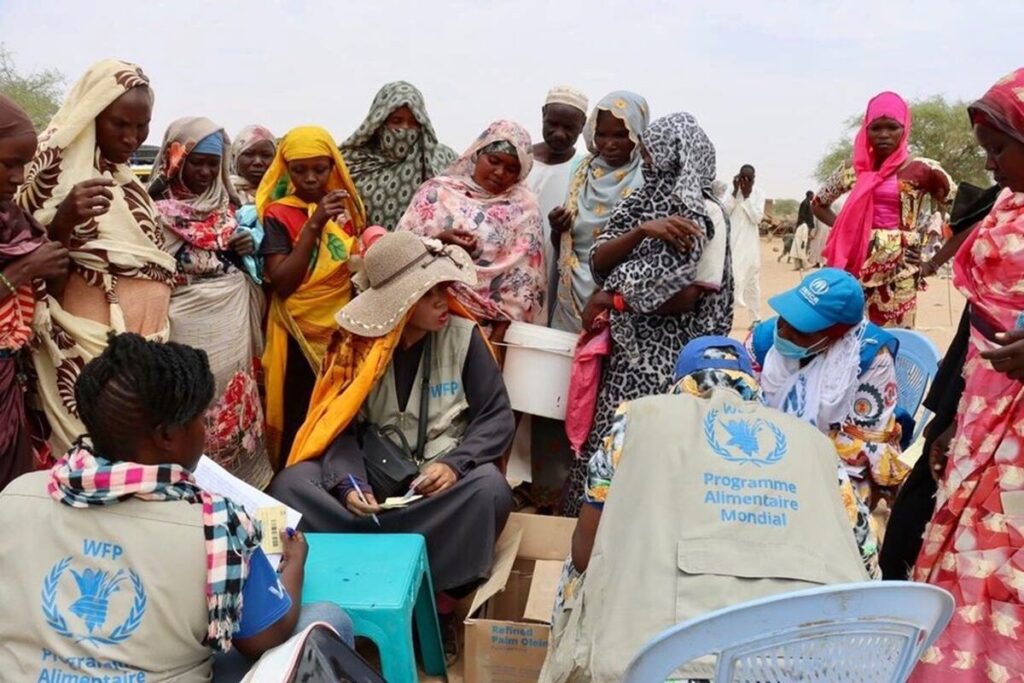The United Nations (UN) World Food Programme revealed on Friday that over 40 million people across West and Central Africa struggle to feed themselves during the 2024 post-harvest season.
The UN in a statement made available to newsmen, said the figure is expected to increase to 52.7 million by the middle of 2025, with 3.4 million of those individuals experiencing emergency levels of hunger (IPC/CH Phase 4).
According to the World Organisation’s new Cadre Harmonisé food security analysis, which was published this month, food insecurity is getting worse even though there has been a slight decrease in the number of people who are severely food insecure compared to the previous year.
This could be attributed to better security and above-average rainfall in some Sahelian regions.
The statement also noted that during the post-harvest season and the June–August 2025 lean season, the number of persons experiencing emergency levels of hunger (IPC/CH Phase 4) increased by 70% and 22%, respectively.
Together, Nigeria, Cameroon, and Chad make up more than half of the world’s population experiencing food insecurity, and those who have been forcibly displaced are the ones who suffer the most from the food crisis.
READ ALSO:
The UN added that this situation highlights the urgent need for more humanitarian assistance and long-term solutions that successfully address the food crisis that is sweeping the Sahel and the Lake Chad region.
“A fundamental change in our approach is necessary to break the vicious cycle of hunger in West and Central Africa,” stated Margot van der Velden, the WFP’s Regional Director for Western Africa.
The region’s food insecurity is fuelled by severe climate shocks, economic instability, relocation, and violence. With a sizable population in Burkina Faso, Chad, Cameroon, Mauritania, Niger, and Nigeria, the region has seen more than 10 million people forcefully displaced.
“People who have been forcibly displaced are frequently separated from their fields and grazing areas, which makes farming—which is essential to food security—impossible.”
Additionally, climatic shocks undermine agricultural output, devastate livelihoods, and claim lives, particularly the disastrous floods that devastated six million people this year.
“The need for an urgent paradigm shift in response is highlighted by the ongoing decline in food security and nutrition, despite tremendous efforts by governments and partners,” stated Robert Guei, FAO Sub-regional Coordinator for West Africa.
“We need to strengthen and implement joint integrated resilience programs in the most affected countries and beyond,” the organisation said, calling for massive investments in preparedness, anticipatory action, and resilience-building to empower communities and reduce humanitarian needs, as well as timely, flexible, and predictable funding to deliver life-saving assistance to those affected by crises.
Furthermore, we must make it easier for smallholder farmers to obtain locally made fertilisers to increase the production of wholesome, reasonably priced, and sustainable food.
According to the report, many families are unable to buy even the most basic, nutrient-dense food because of the situation being exacerbated by rising food prices and households’ poor purchasing power.
The cost of living has surged in coastal nations like Senegal, Guinea, Sierra Leone, and Nigeria, making these economic problems especially acute.
The state of children’s nutrition is being severely impacted.
An estimated 16.3 million children were predicted to have acute malnutrition in 2024, with 5 million of those cases being severe. A worsening scenario is also evident in several Sahelian locations, according to recent nutrition surveys.
Early childhood nutrition is crucial for a child’s survival, development, and future health as an adult.
“By improving health, improving educational outcomes, and increasing productivity throughout life, every dollar invested in nutrition yields up to $16 in economic returns,” stated Gilles Fagninou, regional director for UNICEF.
“As we work to prevent malnutrition in the first place, we must make sure that there is a steady and adequate supply of therapeutic food to treat children under five in the region.”
FAO, UNICEF, and WFP stated that they will intensify their ongoing efforts to reduce hunger, create resilient communities, transition to sustainable food systems, and help people escape poverty through resilience-building programmes in collaboration with national governments, provided they receive adequate and consistent funding.















